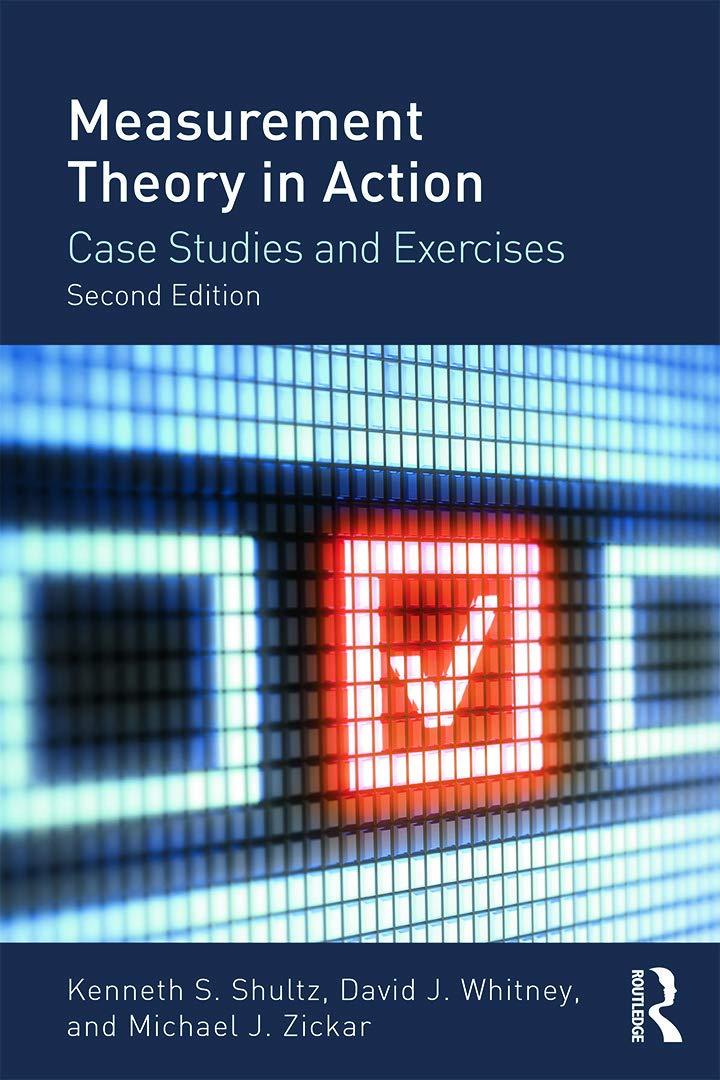EXERCISE 16.1: CORRECTION FOR GUESSING IN MULTIPLE-CHOICE KNOWLEDGE TESTSCOMPUTER EXERCISE OBJECTIVE: To practice using the correction-for-guessing formula
Question:
EXERCISE 16.1: CORRECTION FOR GUESSING IN MULTIPLE-CHOICE KNOWLEDGE TESTS—COMPUTER EXERCISE OBJECTIVE: To practice using the correction-for-guessing formula discussed in the module overview with computerized data.
The data set “GMA Data.sav” (see Appendix B) contains scores for 323 individuals on a 40-item general mental ability test that includes both verbal and quantitative questions. Each item has already been scored as incorrect (0) or correct (1).
The data set also has a total raw score for each individual. Demographic data are also provided. Using the correction formula (discussed in the overview), compute a corrected-for-guessing score for each individual. Note that all questions have five possible responses (i.e., k = 5).
1. What is the relationship between the uncorrected and corrected scores?
2. Does guessing seem to help some respondents more than others? Discuss.
3. Respondents were not warned about the possibility of correcting for guessing. Is it fair, then, to correct for guessing in this situation? Discuss.
4. What alternatives to correcting for guessing could you use to increase the quality of the test scores?
Step by Step Answer:

Measurement Theory In Action
ISBN: 9780415644792
2nd Edition
Authors: David Whitney, Kenneth S Shultz, Michael J Zickar






